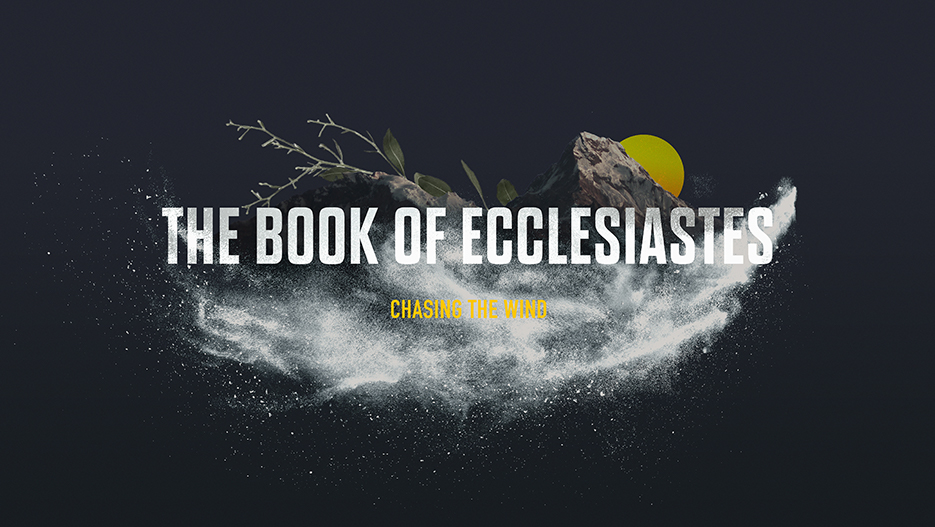Tonight we are discussing Ecclesiastes 2. In this section, the Speaker relates his experience and observations as to the emptiness of pleasure, the emptiness of possessions, the emptiness of work, and the somewhat relative value of wisdom. As we read through this chapter tonight, there are two related topics we may address.
First, is the age of the Speaker. One of the keys to understanding Ecclesiastes is that the Speaker is old. In this chapter and throughout the book, the Speaker is looking back over his life in an attempt to make sense of it. His wisdom is not a theoretical wisdom of the mind, but the practical wisdom of a long life. As Job reminds us, “Wisdom is found among the aged, and long life brings understanding” Job 12:12. It is as an old man that the Speaker pronounces everything as havel.
Last week, Larry Wilson emailed me these two questions which I think are worth all of our consideration: 1) Do you think Solomon was conflicted as a younger man? and 2) Does life itself cause us to question everything, even our own purpose and existence, as we grow older? What are your thoughts? Can someone who is busy establishing themselves and raising a family create a work like Ecclesiastes or can it only come from a retired empty-nester? Some of you are older than I am, and tonight we’ll look at these two similar questions.
Second, the Speaker’s teachings should make us confront the meaningless absurdity of life (that wisdom is better than folly but in the end we’re all dead so it doesn’t really matter(2:17)) but then attempt to somehow rebel against it or escape from it. Most of Camus’ essay, The Myth of Sisyphus, critiques his fellow philosophers’ attempts to ultimately find their way out of life’s patent absurdity. And throughout Ecclesiastes, even the Speaker himself will keep trying to escape and find some lasting meaning.
On Tuesday nights, whatever book we are reading, I always try to understand the writer’s perspective and try to present it and defend it. My hope is that together we will all come to a greater understanding of the writer’s perspective, and thus broaden our own perspective. However, simply because we understand someone’s point-of-view, does not require that we adopt that point of view. Therefore, you are always encouraged to disagree with the writer or my understanding of the writer. Particularly with a work like Ecclesiastes, you may accept the Speaker’s point-of-view, as I do, or you may actively rebel against its very inclusion in the canon of Scripture. Therefore, tonight we may also specifically confront the Speaker himself and his view of life and death.
Dinner is at 6. The menu is St. Patrick’s Day. Discussion at 6:45. Hope to see you here.
For, humanly speaking, death is the last thing of all; and, humanly speaking, there is hope only so long as there is life. But Christianly understood death is by no means the last thing of all, hence it is only a little event within that which is all, an eternal life; and Christianly understood there is in death infinitely much more hope than merely humanly speaking there is when there not only is life but this life exhibits the fullest health and vigor.
Sören Kierkegaard The Sickness Unto Death

